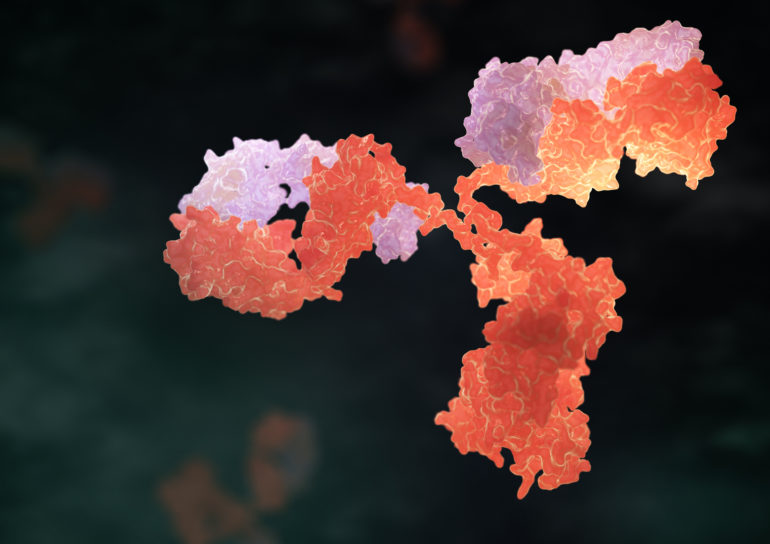
Biclonics: A New Era of Immuno-Oncology?
by Jane Antony, PhD | October 15, 2018
Emerging Immuno-oncology players and their impact on the current oncology market
Global oncology-related healthcare costs are estimated to surpass $150B by 2021, with an annual growth rate of 6-10%. While conventional therapies (e.g., chemotherapies, small molecule targeted therapies) have enjoyed limited success, targeted biologics within the immuno-oncology (IO) sphere are poised to improve existing treatment outcomes, and revolutionize current treatment strategies.
The seminal success of checkpoint inhibitors and engineered T cell therapies have generated an outpouring of investment in the field of IO, rapidly expanding the therapeutic niches in oncology-focused health care. With more than 750 IO agents currently under development and/or investigation across a spectrum of tumor types, IO is positioned to drive substantial change in the oncology market and alter treatment paradigms for cancer patients. T-cell stimulation, including the approved PD-1 inhibitors Opdivo and Keytruda, as well as CTLA-4 antagonist Yervoy are the dominant players in the market, their impact underscored in the 2018 Nobel Prize awarded to cancer immuno-therapists James Allison and Tasuko Honjo for their discovery of CTLA-4 and PD-1 respectively. These, alongside engineered T-cell therapies, such as the chimeric antigen receptor T-cell (CAR-T), that have shown tremendous efficacy in a subset of patients. Newly emerging technologies include T-cell localization to the tumor using Bispecific CD3/CD19 antibodies such Blincyto, as well as Biclonics Technology that harnesses novel target combinations specific to different cancers. Given the versatility and permeability of IO therapies, this field is expected to grow exponentially compared to conventional methodologies and alter treatment paradigms.
Merus and the Biclonics Technology
Biclonics Technology, proprietary to Merus, a mid-cap IO company enables the identification of novel tumor-biology specific target molecule combinations and rapid generation of Bispecific trifunctional monoclonal human antibodies. This versatility, poises Merus to expand into several cancer types upon pending success in their first set of clinical trials. Its lead candidates, MCLA-128 which targets HER2+ cancers (in conjunction with HER3), and MCLA-117 which targets CD3 and CLEC12A in AML, are currently in Phase I/II with results expected between Q4 2018 – Q3 2019. The dynamic precision of the Biclonics Technology enables tri-functionalization in MCLA-128 to dually-inhibit the oncogenes HER2 and HER3 on cancer cells, and also synergize the tumor inhibition with an anti-tumor immune response mediated by Fc-region interactions. In MCLA-117, the antibody is tri-functionalized to identify AML cells, recruit and engage T-cells to destroy the marked AML cell, and has a silenced Fc-region to reduce inflammation and improve the safety profile. This ability to juxtapose combinatorial biological targets with a cancer-specific Fc-region response enables Merus to tailor their candidates to effect precision medicine.
The Biclonics Advantage
Their cornerstone technology integrating their patented ‘Spleen to Screen’ and ‘Memo© mouse’ allows for identification of most effective antigen-binding pairs for the intended target, followed by rapid up scaling with biclonics generated at over 99.9% purity. These full-length antibodies, which resemble endogenous human antibodies, are highly biocompatible compared to other bispecific forms in the market, have a longer half-life, and lower immunogenicity in patients. From a macroscopic perspective, these treatment strategies might even surpass global T-cell stimulants as they can selectively recruit and activate T-cells in proximity to the tumor cells, thereby avoiding massive cytokine storms and autoimmune responses. And compared to conventional chemotherapies and targeted therapies, these candidates have the potential to combine tumor-inhibition with immune mediated anti-cancer effect, while drastically lowering systemic toxicity. These inherent advantages elevate Merus over its competitors and provide a substantial buffer against market penetration by other players.
Partnerships, Competitors and Future Catalysts
The novelty of the Biclonics technology has led to Merus forming extensive licensing partnerships with Incyte, Simcere, and Ono, and most recently with Integral Molecular. These alliances benefit from Merus’ combinatorial screening to generate novel therapeutics that are focused on the partner company’s target indication. These strategic partnerships not only allow Merus to diversity its portfolio beyond the IO space, but also gain milestone fees and royalty payments.
While Merus has carved a niche in the IO domain with the Biclonics technology, it is expected to face stiff competition from other players such as Amgen, Fresenius and Roche/Genentech who are developing Bispecific antibodies for diverse indications. Amgen’s Blinatumomab, a Bispecific T-cell engager, is the only Bispecific to have FDA approval for Acute Lymphoblastic Leukemia, while other candidates are in pre-clinical studies. While Bispecifics are no doubt paving the way for novel methodologies in oncology treatment, it remains to be seen whether the Biclonics advantage will raise Merus as a dominant player or remain one of many.
While the company has been gaining investor momentum over the last year, in part due to its promising preclinical and Phase I data for the lead candidates, the early catalysts for MCLA-128 and MCLA-117 between Q4 2018 – Q3 2019 will predict the market penetrative advantage of Biclonics over other treatment strategies. Additionally with its innovative pipeline, particularly combinatorial candidates targeting the oncogene EGFR and stem-cell marker Lgr5, Merus is moving into targeting cancer stem cell populations which are known to sustain tumor growth and recurrence. Given their penchant for unlocking novel tumor biology, Merus represents an emerging ideology that could reinvent the landscape of oncology treatments.
Jane Antony, PhD is a science communication fellow at Biotech Connection Bay Area. She’s also a postdoctoral scholar at Stanford University
Have ideas for a BCBA article? Email bioconnect.bay@gmail.com


